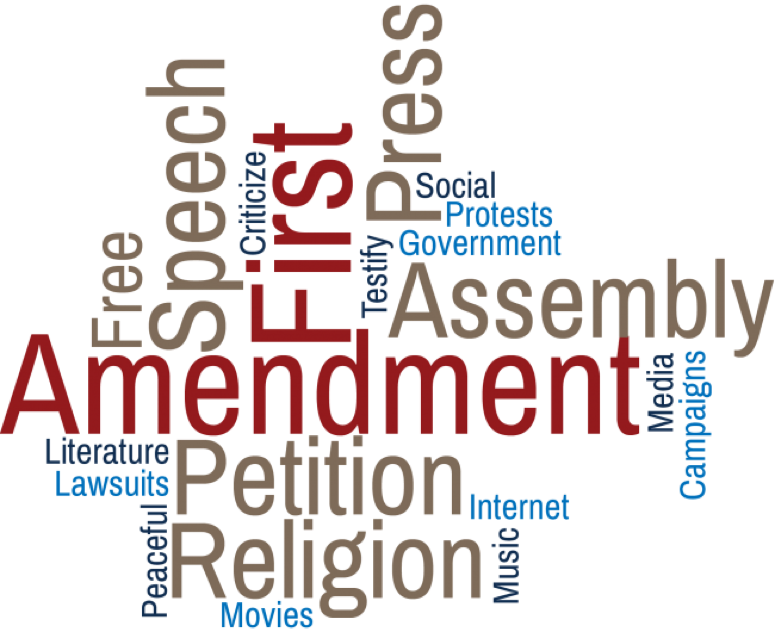By Andre A. Janiszewski
Edgar Welch had spent considerable time on social media. He became obsessed with a story that supposedly linked Hillary Clinton and her campaign manager John Podesta to a pedophilia ring. Arising from a series of tweets, rumors spread that leaked emails from Podesta’s email account contained code words for pedophilia and human trafficking. For example, the phrase “cheese pizza” was believed to mean “child pornography” because the initials were the same. Certain websites began to pick up this story which in turn spread them to social media. Reddit, one of the worlds most popular websites with over 540 million monthly visitors, created a subreddit entitled “pizzagate” to further investigate. A subreddit is basically a group where people can post and share information related to the same topic with one another. At the end of November 2016, Reddit banned the subreddit.
However, the ban was too little too late. The news had spread so fast online with a small Washington D.C. pizza restaurant in the eye of the storm. Comet Ping Pong received hundreds of threatening messages alleging that they were the perpetrators of the child sex operation. Edgar Welch believed that phone calls were not enough to save the children in Comet Ping Pong. On December 4, 2016, he grabbed his AR-15 assault rifle and decide to take matters into his own hands. He arrived at the restaurant and fired three shots into the crowded eatery. Thankfully, no one was injured and he surrendered when he determined that there were no children. Naturally, the entire story has been debunked by all major, reputable news outlets.
Viral myths, as the Chicago Tribune calls them, are not new. In fact, President Donald Trump falsely alleged for years that former President Barack Obama was not born in America, but rather in Kenya. Absurd theories such as this are everywhere. With social media, people can selectively read and follow stories that are tailored to their own beliefs. Opinions, which most political and social commentary consists of, can easily be debated. Facts, on the other hand, should be particularized and concrete, free of ambiguity. However, people today get much of their information from social media which contain false facts. Buzzfeed research has indicated that the top 20 false news stories of 2016 gained over a million more clicks on average than that of the top 20 accurate stories.
There have been numerous Supreme Court cases dealing with intentionally false speech, and the truth of the matter is that much deference has been given to it. Legal scholars readily agree that unpopular speech is what deserves protection under the First Amendment. In 2012, the Court decided an infamous case: United States v. Alvarez. The defendant was elected to the board of a California water district. He prided himself on being a retired Marine of 25 years and his Congressional Medal of Honor. He also emphatically told listeners about his successful NHL career for the Detroit Red Wings. The problem was that Alvarez never played in the NHL and, even worse, violated the Stolen Valor Act by lying about the Medal of Honor. He pled guilty and challenged the SVA on First Amendment grounds. The Supreme Court struck down the SVA, but could not agree why. Justice Kennedy’s plurality opinion stated that false statements, by the sole reason of their falsity, are not excluded from Constitutional protection; subjecting the law to strict scrutiny. Kennedy was unwilling to equate false speech to perjury and determined that “counter speech” appropriates a sufficient check and balance on false statements. Essentially, people should be able to fact check one another.
Justices Alito, Scalia and Thomas argued that the SVA was constitutional. They argued that the First Amendment does not protect false statements that inflict real harm and serve no legitimate interest. It is common knowledge that certain free speech, such as shouting fire in a theater is not protected. Truthfully, fake news does not have the impact as profound as shouting fire in a crowded theater. But what if someone violently and dangerously acts upon false news, as Edgar Welch did a few months ago? Obviously, he will be punished for his actions but it seems that intentionally false speech which led him to those actions is constitutional.
As the Supreme Court continues to expand free speech through cases such as Alvarez, supporters argue that Congress should be able protect consumers. For example, 25 members of Congress recently argued that the FDA would be required to remove the word “milk” from plant based milks. They failed because the makers of plant based milks are not trying to match the theoretically harmful nutrition of dairy milk. Could Congress force Facebook to identify false news stories with a “false” label for readers? The answer is no. The reality is industries would compete for Congress to attach disputed labels to those competitors with opposite viewpoints. However, Justice Louis Brandeis’ comments in 1927 provide food for thought. To him, false news that encourages irrationality does not contribute to a well-functioning democracy. Time will tell the extent of constitutionally permitted free speech, but for now, news outlets can say whatever they want.
Bio: Andre is a staff member on the Journal of High Technology Law. He is currently a 2L at Suffolk University Law School. He holds a B.S. in Business Administration with a concentration in Marketing from Bryant University.
Disclaimer: The views expressed in this blog are the views of the author alone and do not represent the views of JHTL or Suffolk University Law School.

